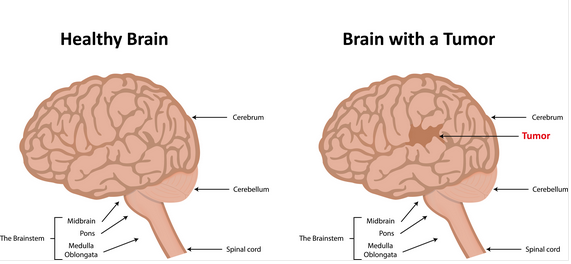Awake craniotomy is a type of brain surgery, during which the patient remains awake. This procedure is carried out to manage cancer of the brain and skull base. A general anesthetic is used to minimize discomfort during the procedure.
Why is it done?
Awake craniotomy is usually recommended when a brain tumor involves or is close to parts of the brain that control vision, movement or speech and that must be preserved. This can avoid any potentially life-changing damage during the surgery.
Why is the patient kept awake?
Awake craniotomy is often opted, when the Functional MRI can not pinpoint the most critical areas of the brain which are to be preserved. These vital areas are located using special speech mapping techniques while the patient is awake in the operating room. Awake speech mapping is carried out by applying a mild electrical current to the surface of the exposed brain.
The patient will be asked to perform various tasks, such as reading or talking or blinking or moving fingers. Surgeons will monitor reflexes and reactions and when stimulation hinders the task, then that area of the brain is marked and preserved. When the stimulation blocks the task, it is considered as the area of the brain that is marked and preserved. This can minimize the complications impacting the patient’s sight, speech or movement.
How is the surgery performed?
Patients will receive general anesthesia before surgery. This will keep them relaxed and calm throughout the procedure. The surgeons will make an incision and remove a small portion of the skull and start awake speech mapping. According to the stimulation, the surgeons will mark and protect critical areas of the brain that control important functions. Awake craniotomy usually lasts four to six hours. After which the patient will spend one to three days in observation, depending on the condition return to normal activity within one to two weeks.
Is it painful?
Awake craniotomy is not painful. As mentioned earlier, the patient will receive general anesthesia and they don’t feel any discomfort. One interesting fact is that the brain doesn’t have any pain receptors so the surgeon can operate without risk of causing pain.
Just like every other brain surgery an awake craniotomy is a highly complex procedure. However, compared to other brain surgeries awake craniotomy facilitates safe and faster recovery. Most often, 75 percent of patients can go home 24 hours or less after surgery.
Book an appointment at Chennai brain and spine for expert guidance and discuss with expert surgical oncologists and neurosurgeons who have specific experience in removing cancers from high-risk areas of the brain.
Reviewed By: Dr Shyam Sundar K
Visit Us: chennaibrainandspine.com
Mail Us: shyamsundar_krishnan@yahoo.com
Book Appointment: chennaibrainandspine.com/book-appointment.html
Visit Us: chennaibrainandspine.com
Mail Us: shyamsundar_krishnan@yahoo.com
Book Appointment: chennaibrainandspine.com/book-appointment.html


